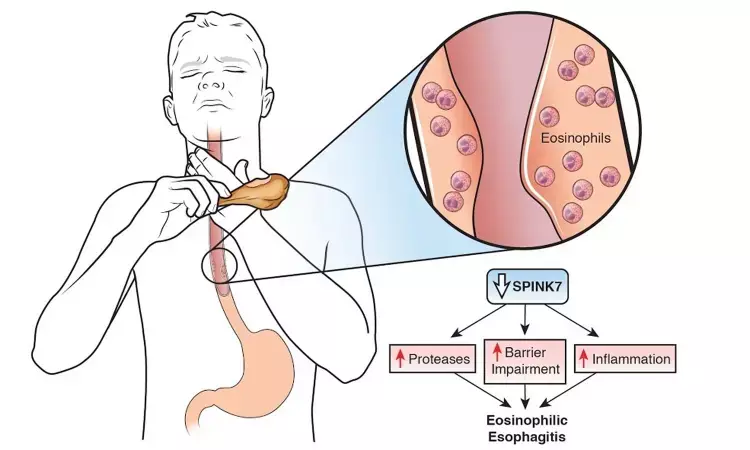- Home
- Medical news & Guidelines
- Anesthesiology
- Cardiology and CTVS
- Critical Care
- Dentistry
- Dermatology
- Diabetes and Endocrinology
- ENT
- Gastroenterology
- Medicine
- Nephrology
- Neurology
- Obstretics-Gynaecology
- Oncology
- Ophthalmology
- Orthopaedics
- Pediatrics-Neonatology
- Psychiatry
- Pulmonology
- Radiology
- Surgery
- Urology
- Laboratory Medicine
- Diet
- Nursing
- Paramedical
- Physiotherapy
- Health news
- Fact Check
- Bone Health Fact Check
- Brain Health Fact Check
- Cancer Related Fact Check
- Child Care Fact Check
- Dental and oral health fact check
- Diabetes and metabolic health fact check
- Diet and Nutrition Fact Check
- Eye and ENT Care Fact Check
- Fitness fact check
- Gut health fact check
- Heart health fact check
- Kidney health fact check
- Medical education fact check
- Men's health fact check
- Respiratory fact check
- Skin and hair care fact check
- Vaccine and Immunization fact check
- Women's health fact check
- AYUSH
- State News
- Andaman and Nicobar Islands
- Andhra Pradesh
- Arunachal Pradesh
- Assam
- Bihar
- Chandigarh
- Chattisgarh
- Dadra and Nagar Haveli
- Daman and Diu
- Delhi
- Goa
- Gujarat
- Haryana
- Himachal Pradesh
- Jammu & Kashmir
- Jharkhand
- Karnataka
- Kerala
- Ladakh
- Lakshadweep
- Madhya Pradesh
- Maharashtra
- Manipur
- Meghalaya
- Mizoram
- Nagaland
- Odisha
- Puducherry
- Punjab
- Rajasthan
- Sikkim
- Tamil Nadu
- Telangana
- Tripura
- Uttar Pradesh
- Uttrakhand
- West Bengal
- Medical Education
- Industry
Fluticasone Propionate Disintegrating Tablet cuts dysphagia frequency in Eosinophilic Esophagitis

APT-1011 (fluticasone propionate oral disintegrating tablet) dosage regimens outperformed placebo in terms of endoscopic and histologic responses, as well as reduction in dysphagia frequency in patients with eosonophilc esophagitis, says an article published in Clinical Gastroenterology and Hepatology.
Eosinophilic esophagitis (EoE) can be effectively treated with topical steroids . Evan S. Dellon and colleagues performed the FLUTE (Fluticasone in EoE) experiment, which compared the safety and effectiveness of APT-1011 against placebo for the treatment of EoE.
In this phase 2b randomized, placebo-controlled, double-blind, dose-finding experiment, 106 people with EoE were randomly assigned to one of four APT-1011 dosages or placebo for up to 12-week induction period with 40 weeks of maintenance. At Week 12, the primary outcome was histologic response (6 eosinophils per high-power field). Secondary outcomes included endoscopic characteristics and the frequency of dysphagia.
The key findings of this study were as follow:
1. The histologic response rates were shown to be 0% for placebo, 80% for APT-1011 3 mg twice daily (BID), 67 % for 3 mg at bedtime (HS), 86 % for 1.5 mg BID, and 48% for 1.5 mg HS.
2. Mean Edema/Rings/Exudates/Furrows/Strictures (EoE Endoscopic Reference Score) total score (max, 9.0) increased from 5.3 to 2.1 for 3 mg HS, 4.5 to 2.3 for 3 mg BID, 5.3 to 2.9 for 1.5 mg HS, 4.6 to 1.7 for 1.5 mg BID, versus 5.2 to 4.5 for placebo at Week 12.
3. From baseline to Week 12, the mean frequency of dysphagia improved over 14 days, with all active groups improving more than the placebo.
4. The gains continued through Week 52.
5. APT-1011 was shown to be safe and well-tolerated, with the higher twice-daily dosages showing a greater incidence of candidiasis.
In conclusion, based on symptom relief, adverse event evaluation, and histologic response rate, 3 mg once day at night dosing demonstrated the most favorable risk-benefit profile.
Reference: Fluticasone Propionate Orally Disintegrating Tablet (APT-1011) for Eosinophilic Esophagitis: Randomized Controlled Trial. Dellon, Evan S. et al. DOI:https://doi.org/10.1016/j.cgh.2022.02.013
Keywords: Fluticasone propionate, Eosinophilic esophagitis, dysphagia, endoscopy, stricture, edema, histology, eosinophils, Clinical Gastroenterology and Hepatology
Medical Dialogues consists of a team of passionate medical/scientific writers, led by doctors and healthcare researchers. Our team efforts to bring you updated and timely news about the important happenings of the medical and healthcare sector. Our editorial team can be reached at editorial@medicaldialogues.in.
Dr Kamal Kant Kohli-MBBS, DTCD- a chest specialist with more than 30 years of practice and a flair for writing clinical articles, Dr Kamal Kant Kohli joined Medical Dialogues as a Chief Editor of Medical News. Besides writing articles, as an editor, he proofreads and verifies all the medical content published on Medical Dialogues including those coming from journals, studies,medical conferences,guidelines etc. Email: drkohli@medicaldialogues.in. Contact no. 011-43720751


